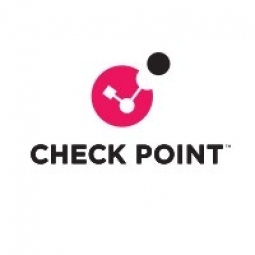Technology Category
- Cybersecurity & Privacy - Endpoint Security
- Networks & Connectivity - Gateways
Applicable Industries
- Cement
- National Security & Defense
Applicable Functions
- Sales & Marketing
Use Cases
- Remote Control
- Tamper Detection
Services
- System Integration
About The Customer
Geiger Brothers is a family-owned business that has been operating since 1878. The company offers more than half a million products that can be personalized from a wide range of manufacturing partners. Customers can choose from the online Star Performers catalog of its most popular items, search the GeigerMall, or work with a promotional counselor to select the right promotional or motivational items. The company has 500 employees across 20 offices in the United States, all of whom rely on the company’s centralized order management system in Lewiston, Maine, and its document image system containing 3 million documents.
The Challenge
Geiger Brothers, a promotional products company, faced a significant challenge in 2005 when it acquired four companies and established four new offices. The company's 500 employees across 20 offices relied heavily on the centralized order management system and document image system, which contained 3 million documents, including all orders, sales receipts, and expense reports. The company was running a nearly entirely paperless operation, which increased the demand for secure and efficient remote access for employees. This demand was not only from executives who were frequently traveling for acquisitions and industry tradeshows but also from sales associates who wanted the flexibility to work from home or other locations. The challenge was to simplify remote access for executives and sales associates, create cost-effective, secure networks and connectivity in small office/home office (SOHO), speed up the deployment of new branch offices, and enable high availability and performance for data and voice.
The Solution
To address these challenges, Geiger Brothers partnered with Check Point and Akibia, its long-time consultant for network and security solutions. Geiger securely connected all its branch offices to the Lewiston headquarters by site-to-site virtual private networks (VPNs) for both data and voice communications, using the Check Point VPN-1 Pro NGX release to provide the most fault-tolerant and secure links. With Akibia’s consultation and support, Geiger switched from frame relay to VPNs using Check Point solutions, achieving total payback on its investment in less than one year. To meet the growing employee demand for remote access, Akibia suggested SSL Network Extender, a browser-based applet that gives users access to Web and non-Web applications with all the security features provided by VPN-1 Pro. This solution required no software installation on user computers, simplifying the process and enhancing security.
Operational Impact
Quantitative Benefit

Case Study missing?
Start adding your own!
Register with your work email and create a new case study profile for your business.
Related Case Studies.

Case Study
System 800xA at Indian Cement Plants
Chettinad Cement recognized that further efficiencies could be achieved in its cement manufacturing process. It looked to investing in comprehensive operational and control technologies to manage and derive productivity and energy efficiency gains from the assets on Line 2, their second plant in India.

Case Study
Data Capture for Afghanistan Forces
Electronic equipments on the field of Afghanistan provided information on the status of the vehicle and to identify potential threats surrounding it to the British Force. The monitoring and interpretation of this data requires robust and sophisticated digitization for data capture and communication.

Case Study
Digital Transformation of Atlanta Grout & Tile: An IoT Case Study
Atlanta Grout & Tile, a Tile, Stone & Grout restoration company based in Woodstock, Georgia, was facing challenges with its traditional business model. Despite steady growth over the years, the company was falling behind the web revolution and missing out on the opportunity to tap into a new consumer base. They were using independent software from different vendors for each of their department information and workforce management. This resulted in a lot of manual work on excel and the need to export/import data between different systems. This not only increased overhead costs but also slowed down their response to clients. The company also had to prepare numerous reports manually and lacked access to customer trends for effective business decision-making.

Case Study
Major Aerospace Company Automates Asset Management
The O&M division of an aerospace and global security company was using spreadsheets to manually track more than 3,000 assets assigned to students and staff. Maintaining audit trails for this high volume of equipment became increasingly time-consuming and challenging. The chore involved knowing precisely what equipment was on hand, what had been issued, its location and the name of the custodial owner of each item. Every aspect of this task was carried owner of each item. Every aspect of this task was carried out by individuals with spreadsheets. Manually documenting the full lifecycle of each asset added to the burden. This included tracking maintenance requirements and records, incidents and damages, repairs, calibrations, depreciation, and end-of-life data.

Case Study
Revolutionizing Construction Equipment Rental: A Case Study on ProsRent and ENO8
ProsRent, a startup that won the 'Best Financial Opportunity' and 'Best Pitch' at CodeLaunch 2016, aimed to revolutionize the way construction professionals source and rent heavy equipment. In the construction industry, project managers and contractors typically rent heavy equipment from supply companies. However, predicting inventory can be challenging, and finding the required equipment at the right time and place can be a hassle. If the preferred vendor doesn't have the required equipment, it results in wasted time and money in searching for it, often leading to higher costs due to non-preferred rates and increased delivery costs if the vendor is located far from the job site. Suppliers, on the other hand, desired access to a wider base of trusted renters that they didn't have to vet themselves and wanted to offer dynamic rental pricing based on demand and availability in their market. ProsRent's challenge was to produce a minimum viable product that was fast and first to market but also strong enough to engender loyalty and repeat business from the target market.




